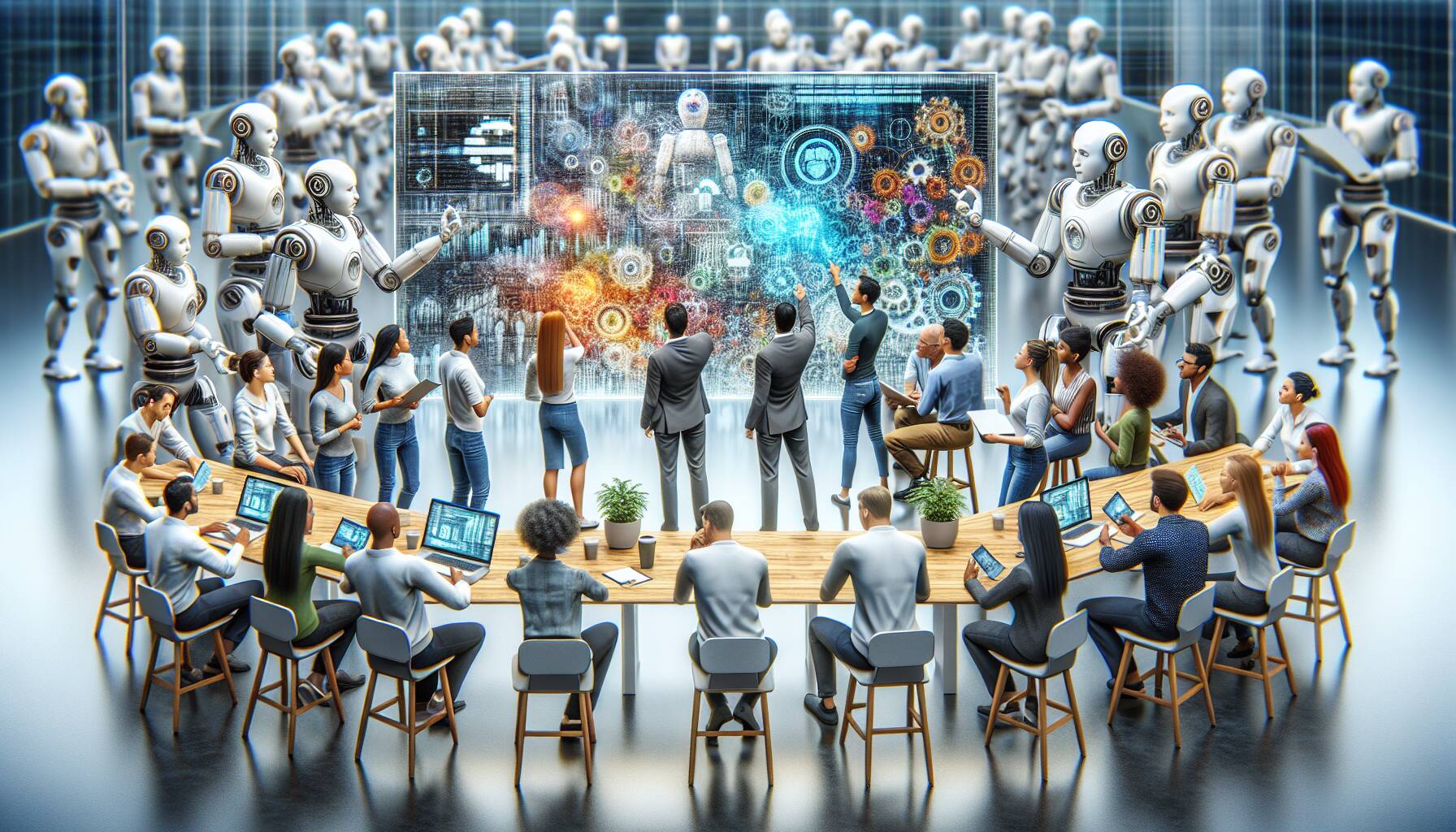The rise of artificial intelligence (AI) and robotics is reshaping the landscape of work as we know it, posing significant challenges and sparking crucial conversations about the future of employment. As machines increasingly take over tasks across various sectors—from manufacturing to law and transportation—millions of jobs are at risk of disappearing. This shift is not a distant concern; it is unfolding before our eyes, compelling society to rethink the traditional association of work and financial stability.
In this context, public figures and experts are advocating diverse solutions to ensure that the benefits of automation are equitably distributed. One of the most widely discussed proposals is Universal Basic Income (UBI), which advocates for direct cash payments to individuals irrespective of employment status. UBI aims to provide people with financial security, enabling them to meet basic needs. Notable proponents like UC Berkeley’s Professor Mark Garman have introduced concepts like Universal Basic Capital, which would grant citizens a stake in income-generating assets. Meanwhile, XPrize founder Peter Diamandis and OpenAI CEO Sam Altman share their visions for Universal Basic Ownership and Universal Extreme Wealth, respectively, promoting notions of societal ownership in AI advancements and an abundance economy.
“If machines are doing most of the work and generating the wealth, we should cut people in directly to the money earned.”
While these ideas are promising, critics express concerns over the costs and potential disincentives for labor. Nevertheless, evidence from real-world implementations suggests that UBI can alleviate stress and promote entrepreneurship rather than foster laziness. The simplicity and immediacy of cash payments represent a compelling advantage, especially for those impacted by job displacement due to automation.
As the discussion continues, it is evident that any solution—whether UBI or alternative models—must prioritize a fair distribution of the wealth generated by AI. The urgency to act is clear; as automation reshapes our economy, we must ensure no one is left stranded in a rapidly changing job market.

The Impact of AI and Universal Basic Income
Key Points:
- Job Displacement: AI and robotics are rapidly replacing jobs across various sectors, making survival tied to a paycheck increasingly obsolete.
- Universal Basic Income (UBI): A proposed solution ensuring everyone receives a monthly payment to cover basic needs, promoting financial stability.
- Alternatives to UBI: Concepts like Universal Basic Capital, Universal Basic Ownership, and Universal Extreme Wealth present different methods to share AI-generated wealth.
- Criticism of UBI: Concerns about cost, inflation, and work incentives, though trials indicate positive outcomes like reduced stress and increased entrepreneurial activity.
- Immediate Needs: UBI provides liquidity for individuals facing job loss, offering direct financial support without bureaucratic hurdles.
- Moral Imperative: It is essential to distribute wealth generated by AI to prevent societal unrest and economic disparity.
- Future Potential: While UBI is a starting point, it could be combined with other wealth-sharing models for a comprehensive approach to economic stability.
The aim is to ensure that as wealth grows due to AI, it is distributed in a manner that supports society, preventing fracture and unrest.
Navigating the Future: Universal Basic Income vs. Competing Models in an AI-Driven Economy
The emergence of advanced artificial intelligence and robotics has intensified discussions around economic models that can accommodate a rapidly changing job landscape. Among the proposed solutions, Universal Basic Income (UBI) stands out as the most immediate and practical approach for providing financial security in an era where traditional employment is declining.
Competitive Advantages of UBI: One of the key strengths of UBI lies in its straightforward implementation. Unlike alternatives such as Universal Basic Capital or Universal Basic Ownership, which involve complexities like financial literacy and equity distribution, UBI offers a simple cash payment to individuals without bureaucratic hurdles. This direct transfer can alleviate immediate financial burdens, enabling recipients to meet their basic needs such as groceries and rent, thus stabilizing the economy during times of disruption. Moreover, studies indicate that recipients often continue to work and invest in personal development, countering the criticism that UBI encourages laziness.
Disadvantages of Alternative Models: On the other hand, models like Universal Basic Capital presented by Mark Garman aim to create a form of asset-based income distribution. Though appealing for long-term wealth accumulation, it risks exposing participants to the volatility of market crashes, which could leave many without the financial stability UBI provides. Similarly, Peter Diamandis’ concept of Universal Basic Ownership, while aligning public interests with corporate growth, poses challenges in convincing companies to share equity without a clear structure for rent payments and profitability. Meanwhile, Sam Altman’s vision of Universal Extreme Wealth, though hopeful, remains speculative and requires a technological utopia that is still a long way off.
Beneficiaries and Potential Problems: UBI essentially serves as a safety net for those displaced by automation, offering them a chance to adapt without risking their immediate livelihood. This could particularly benefit low-income workers in sectors most susceptible to AI disruption, such as manufacturing and transportation. However, the implementation of UBI might create challenges for traditional economic models reliant on full employment, as society navigates the transition from a work-centric paradigm to one that recognizes human value beyond job status.
As the conversation around these solutions continues, it’s evident that while UBI offers an immediate remedy, the potential of other models shouldn’t be disregarded. The debate highlights the urgency of addressing income inequality as we push further into an automated future. Now more than ever, it’s crucial to explore diverse economic strategies to ensure the benefits of AI are widely shared, avoiding societal fractures that could arise from growing discontent.














